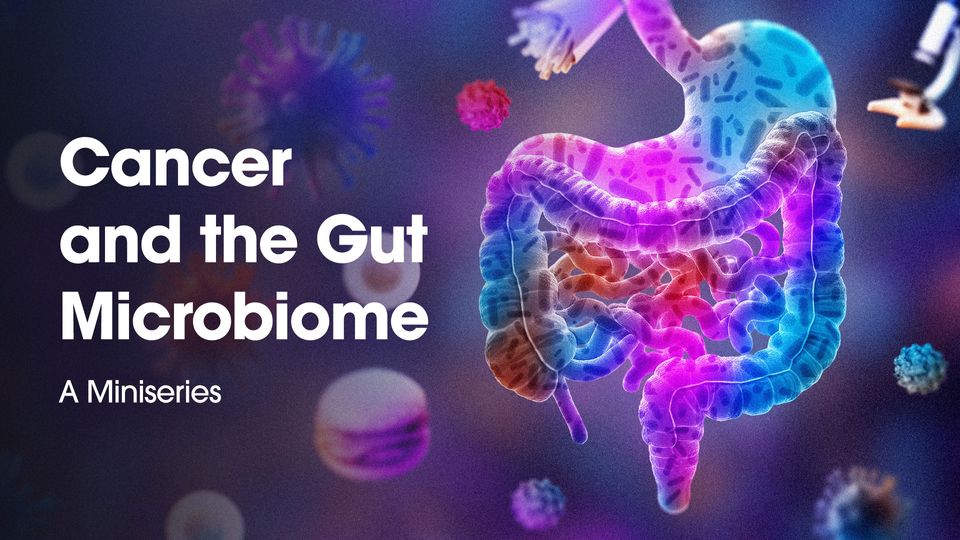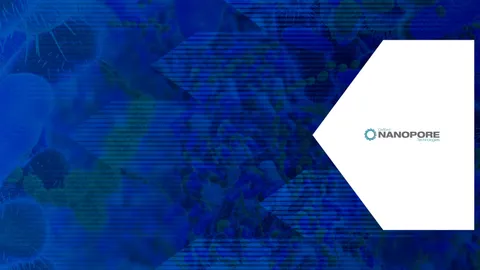Engineering the Gut To Fight Cancer
Discover how scientists are engineering microbes to fight tumors from the inside out.

Once considered passive residents of the digestive tract, gut microbes are now recognized as powerful regulators of human health – particularly in the context of cancer.
As highlighted in our previous article, growing evidence shows that the gut microbiome not only modulates immune responses but also influences how cancer therapies are absorbed, metabolized and tolerated. Conversely, treatments such as chemotherapy can disrupt microbial communities, often reducing microbe diversity and enabling harmful bacteria to thrive.
Innovative strategies, including fecal microbiota transplantation (FMT), probiotics and engineered “smart” bacteria, are opening new frontiers in oncology. By reshaping the microbiome, researchers aim to improve drug responses, reduce treatment-related toxicity and reprogram the tumor microenvironment.
In this fourth installment of The Gut Microbiome and Cancer: A Miniseries, we explore how harnessing microbial communities – both natural and synthetic – could help shape the future of precision cancer therapy.
Fecal microbiota transplants
FMT, also known as stool transplantation, involves transferring a complex community of microbes from the feces of a healthy donor into the gastrointestinal tract of a patient.
While FMT has been traditionally used to treat recurrent Clostridioides difficile infections, it is now being investigated as a novel tool in precision oncology. By restoring microbial diversity and correcting dysbiosis, FMT may help reprogram the tumor microenvironment to support anti-tumor immunity.
Preclinical and early-stage clinical studies suggest that FMT from donors who previously responded well to immunotherapy can transfer this responsiveness to patients who did not initially benefit. By reshaping microbial metabolites and modulating immune–tumor cell interactions, FMT has been shown to enhance T-cell infiltration, dampen pro-inflammatory cytokines and potentially improve treatment outcomes.
However, this whole-ecosystem approach comes with limitations. As highlighted in recent research from the University of Chicago, FMT should be seen as a proof-of-concept rather than a universal solution. Introducing an entire microbial consortium brings complexity, and many of the interactions between donor microbes and host biology remain poorly understood. Long-term safety, especially in immunocompromised cancer patients, also remains a key concern.
Probiotics and prebiotics
Probiotics (live beneficial microbes) and prebiotics (non-digestible compounds that nourish them) are being actively explored as tools to restore gut balance in cancer patients. Probiotics are gaining medical relevance due to their potential to prevent and support the treatment of chronic diseases, including cancer, with minimal side effects.
Previous studies suggest probiotics may help prevent, treat or slow the progression of several cancers, including colorectal, liver, breast, bladder and cervical cancer.
Among these, Lactobacillus rhamnosus GG (LGG) stands out for its anti-inflammatory properties and ability to reduce gut toxicity caused by chemotherapy and radiation. In preclinical studies, LGG has shown anti-cancer effects by modulating immune responses and suppressing tumor cell proliferation.
In animal models, LGG delivered through food helps preserve gut microbiota composition and intestinal barrier function by mitigating damage caused by 5-fluorouracil and radiation therapy. These protective effects occur through both direct action on cancer cells and indirect immune modulation.
In vitro studies across various tumor types demonstrate that LGG can exert anti-proliferative and anti-metastatic effects. These outcomes may be mediated by modulation of key host signaling pathways, such as mTOR and Wnt/β-catenin. LGG has also been shown to prevent polyp formation in APCMin/+ mouse models of colorectal cancer and reduce colitis-associated tumor development.
A recent systematic review and meta-analysis found that perioperative probiotic administration may have effects on reducing postoperative complications, including overall infectious complications, in patients undergoing colorectal cancer (CRC) surgery without any significant adverse effects. However, the authors concluded “the results of our meta-analysis were mostly based on the low certainty of evidence, and large-scale randomized controlled trials are warranted to elucidate the effect of probiotics”.
Despite promising findings, caution is warranted. In immunocompromised patients, probiotics may pose risks of opportunistic infection, in addition to indiscriminate use could contribute to antibiotic resistance or lead to unpredictable immune effects.
Future research should focus on strain-specific mechanisms, optimal dosing regimens and long-term safety to fully realize the therapeutic potential of probiotics in cancer care. More robust, randomized, double-blind, placebo-controlled clinical trials are needed to validate their role in oncology and gain broader clinical acceptance.
Engineering “smart probiotics” for CRC therapy
Synthetic biology is transforming microbiome research by applying engineering principles to microbial design. Building on the above, researchers are now creating “smart probiotics” – engineered microbes that can sense and respond to the gut environment and deliver therapeutic compounds precisely where they’re needed.
In preclinical models of CRC, a promising example has emerged: Pediococcus pentosaceus (P. pentosaceus), a safe, food-grade lactic acid bacterium engineered to express a therapeutic protein called P8. When administered to mice, these modified bacteria significantly inhibit tumor growth and reduce tumor volume compared to controls.
Unlike attenuated pathogenic bacteria, which pose safety risks due to potential toxicity or infection, lactic acid bacteria are non-pathogenic and often confer health benefits, making them ideal candidates for therapeutic delivery.
In two mouse models – one using CRC cell-derived xenografts and the other modeling colitis-associated cancer induced by azoxymethane and dextran sodium sulfate – the engineered probiotic not only reduced tumor burden but also triggered polyp regression and restored taxonomic diversity in the gut microbiota.
Further analysis revealed that the synthetic probiotic modulated gut microbial composition and alleviated chemically induced dysbiosis. Correlation networks showed that bacterial taxa such as Akkermansia and Turicibacter – associated with eubiosis and dysbiosis, respectively – had positive or negative associations with other microbial community members, suggesting broader ecological benefits.
This study demonstrates the potential of synthetic probiotics to combine safety, specificity and microbial ecosystem modulation. As these technologies advance toward clinical validation, they hold promise as powerful tools for precision cancer therapy.
Beyond the gut microbiome
While many efforts target the gut, others are reengineering bacteria to act directly within tumors. Neobe Therapeutics is a start-up company pioneering this approach by developing synthetic bacteria that degrade the fibrotic barriers in solid tumors.
“One of the main reasons these drugs don’t work in solid tumors is, as the name suggests, their solid nature,” Dr. Pedro Correa de Sampaio, chief executive officer of Neobe, told Technology Networks in a previous interview. “These tumors are difficult to penetrate. Most are highly fibrotic, and because of this dense fibrotic tissue, it’s challenging for drugs to reach their target.”
“Equally as important, it's very hard for immune cells to penetrate these tumors or for the right immune cells to be recruited. The culprit is the extracellular matrix, which forms a dense, fibrous barrier that physically blocks infiltration,” he continued.
In an attempt to combat this, Neobe is developing engineered bacteria designed to act as “Trojan horses” that infiltrate solid tumors and remodel their dense, fibrotic structure.
“Our engineered bacteria act as biological Trojan horses, remodeling tumors from the inside to make them vulnerable to existing drugs,” explained Correa de Sampaio.
Rather than engineering the bacteria to target tumors, these Trojan horses leverage their innate ability to colonize tumors, using safe, commensal-derived bacterial strains that aren’t pathogenic and lack any virulent factors.
“What we focus on is containment – ensuring the bacteria are only active within the tumor,” Correa de Sampaio explained. “We achieve this by engineering a biosensor library in the lab. We design synthetic promoters that respond to factors like low oxygen, low pH and metabolite availability. When these conditions are met, the promoters activate, triggering the bacteria to produce an enzyme payload. This enzyme is then linked to a secretion system that releases it directly into the tumor’s extracellular space.”
By combining synthetic biology, microbial behavior and precise control mechanisms, Neobe is paving the way for next-generation cancer therapies that go beyond conventional small molecules and immunotherapies – using nature itself as the delivery system.





